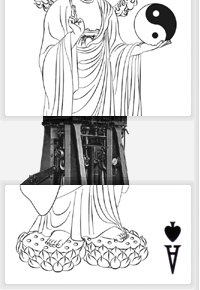An anonymous reader asked:
Recently I came across a piece of news that relates to an old lady ( over 70) who was prosecuted for soliciting for an immoral purpose. The old lady was arrested in a guesthouse in Shamshuipo and inside her purse the police found a bottle of lubricant. Police suspected that she was a prostitute and she was arrested and charged with the crime of soliciting for an immoral purpose.(forget about exact details)Grateful if you can explain:1. Prostitution is not illegal in Hong Kong, but why did police arrest her?2. How can police prove that she is soliciting for an immoral purpose without the man giving evidence against this poor old lady?2. Police uses undercover police woman to dress as prostitute and loiter in the streets and then arrest any man that come forward and ask the undercover police woman "what is the price"or " do you go" etc. Is this kind of "trap " a propoer legal procedure for the police?Does simply asking the price constitutes soliciting for an immoral purpose?
(From: http://daimones.blogspot.com/2006/08/blog-post.html)
****
In reply to this question, I’d tell you that the present Law of Hong Kong does not prohibit prostitution, but it prohibits soliciting “in public”. The English case Smith v Hugh illustrated this point very well. In the case, the accused prostitute stood on her balcony overlooking the main street and solicited customers on street. The issue of the case is whether “balcony” amounts to public place. The court answer was yes, it ruled that so long as you are staying in a place where public can see you, it will be public place. In Hong Kong the following acts will be subject to prosecution ( that’s all I could remember ):
1. Controlling a brothel’
2. Letting out a place to be run as brothel;
3. Controlling or managing prostitution activities;
4. Relying on prostitute for income ( ma-fu ).
And concerning the above offence, the burden to discharge liability is on the accused once the prosecution could establish prima-facie case against the accused. The accused could not rely on the right of silence throughout the whole trial. In another word, he has to speak and defend himself.
In relation to the matter of investigation, according to s.50 and s.55 of the Police Force Ordinance, police could stop any person on street if he has reasonable suspicion on the person, believing he has committed, or is going to commit an arrestable offence. But so long as a person behaves strangely or weirdly, a police could stop this person and require him to produce his ID card. S.50 of the same ordinance governs the power of arrest. In fact, when it comes to the power of arrest, only the subjective view of the policeman is relevant. It does not require any objective standard, unlike that of the “reasonable suspicion” in the situation of stop and search. So police had little difficulty in searching or even arresting the old prostitute.
Lastly, it is the cardinal principle of Criminal Law that “entrapment” is NOT a defense and does not affect guilt. However, “entrapment” is a ground for mitigation, and the court is erred if the fact of entrapment is not taken into account by the sentencing judge. Of course, the discount depends on fact. ( Sentencing in Hong Kong Cross & Cheung 3rd ed )And the court opines the undercover police or agent is necessary in crime investigation. There has been a case where police detective posed himself as prisoner in Lai Chee Kok Remand Centre and overheard conversation between two real prisoners. Court ruled those overheard statement were admissible. Another authority on undercover agent is Secretary for Justice v Lam Tat Ming [2000] HKLRD where the Court of Final Appeal ruled that the court has discretionary power to allow what evidence is admissible and the paramount rule is whether the evidence / confession of guilt was made voluntarily by the defendant and if it is given voluntarily, court then has to consider the role of the undercover again in obtaining the evidence, whether it is active or passive. On top of that, I may add that according to English Common Law, even if the evidence is obtained by illegal way, it is still admissible so long as it is relevant. There is no “fruit of poisonous tree”.
Prostitution and Undercover Investigation
標籤:
左冷禪,
法律隨筆
訂閱:
發佈留言 (Atom)



1 留言:
Many thanks for your explanation.
發佈留言